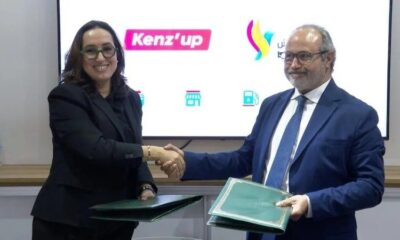International
CAN 2025: A Full-Scale Test
Scheduled from December 21, 2025, to January 18, 2026, in Morocco, the 35th edition of CAN 2025 promises to be a true celebration of African unity. In addition to the sporting competitions, cultural and artistic events will enhance the program, showcasing the richness and diversity of the continent.

With modern infrastructure, revolutionary connectivity, and a national team ready to compete, the Kingdom of Morocco is preparing to deliver an unforgettable spectacle. This CAN 2025 will not only be a tournament but a milestone in the history of African and global football.
This edition will not be limited to a celebration of African football; it will also serve as a dress rehearsal and a true test in the eyes of the world for an even more ambitious project paving the way for a 2030 World Cup that promises to be equally exceptional.
That said, this continental tournament, with preparations reaching a frantic pace, is designed as a dazzling demonstration of Moroccan expertise in organizing international sporting events. With cutting-edge technological innovations, including the upcoming integration of 5G in stadiums and surrounding infrastructures, Morocco is positioning itself at the forefront of modernity.
This ultrafast connectivity, which could become the norm during the 2030 World Cup, will allow spectators and media to experience an immersive environment. Thanks to 5G, the stadiums will become true interactive hubs. Spectators will have access to innovative features such as real-time statistics, exclusive viewing angles, and instant replays directly on their mobile devices.
Dedicated mobile apps for the event will also provide interactive guides to navigate the facilities, book services, and participate in immersive experiences. This ultrafast connectivity will benefit not only the fans. Media professionals will have advanced tools for processing and broadcasting live data, ensuring superior transmission quality for international audiences.
Visionary host of a dynamic Africa
Hosting the Africa Cup of Nations 2025 represents much more for Morocco than just a continental sporting event. This tournament is a strategic opportunity to assess the Kingdom’s capacity to organize large-scale international events while refining its infrastructure, logistical arrangements, and security protocols.
The CAN 2025 will also serve as a test to evaluate these solutions in preparation for the 2030 World Cup, which the Kingdom will co-host with Spain and Portugal. This open-air laboratory will allow Morocco to identify its strengths and areas for improvement while consolidating its position as one of the African leaders in organizing sporting events.
CAN 2025 will not only be a celebration of African football but also a crucial milestone in preparing for what could be one of the greatest sporting events in Morocco’s history.
On the green pitches of Moroccan stadiums refurbished for the occasion, this grand event promises to be one of the most competitive editions in history. Featuring 24 teams from the continental elite, the tournament will highlight emerging talents in African football (except for the Ghanaian Black Stars, four-time champions who have been eliminated from this edition), while providing a platform for high-level encounters.
This sporting event takes place in a context where Morocco shines on the international football stage, particularly following the historic performance of the Atlas Lions in the 2022 World Cup, becoming the first African team to reach the semifinals. The country aims to replicate this achievement, if not surpass it, with a team energized by its recent successes.
Reflecting on CAN 2015: lessons and perspectives
The organization of CAN 2025 also carries a whiff of revenge for Morocco. Ten years earlier, the Kingdom was set to host the 2015 edition of the competition but had to withdraw due to the Ebola epidemic that was severely affecting the continent.
This withdrawal, which benefited Equatorial Guinea, although understandable from a health perspective, left a bitter taste for many Moroccan and African football fans.
Today, Morocco wants to turn the page and prove that it is more than ever ready to honor Africa. By organizing a memorable edition, it aims not only to redeem itself in the eyes of enthusiasts but also to permanently establish its name among the great hosts of world football.












